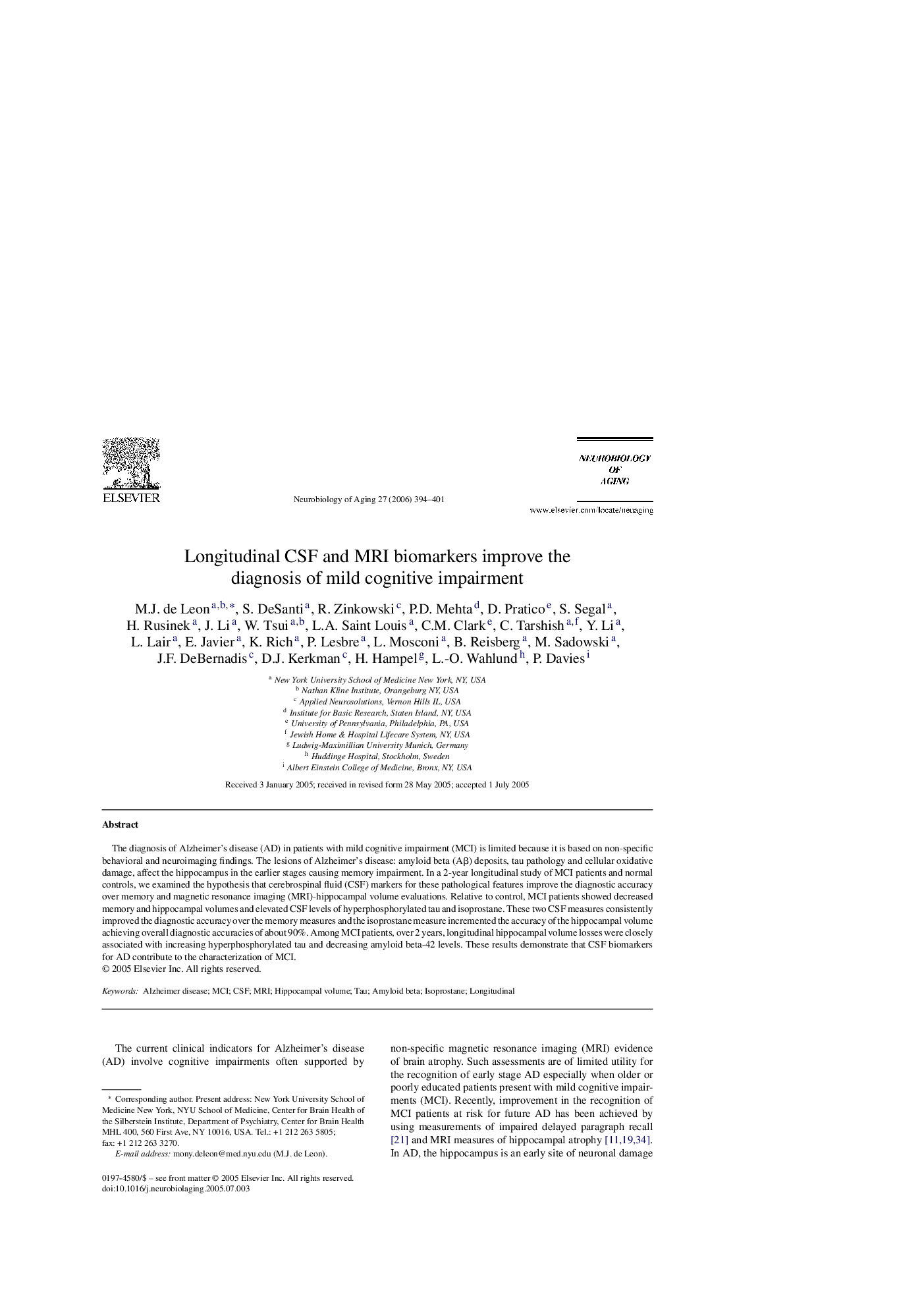| Article ID | Journal | Published Year | Pages | File Type |
|---|---|---|---|---|
| 328950 | Neurobiology of Aging | 2006 | 8 Pages |
The diagnosis of Alzheimer's disease (AD) in patients with mild cognitive impairment (MCI) is limited because it is based on non-specific behavioral and neuroimaging findings. The lesions of Alzheimer's disease: amyloid beta (Aβ) deposits, tau pathology and cellular oxidative damage, affect the hippocampus in the earlier stages causing memory impairment. In a 2-year longitudinal study of MCI patients and normal controls, we examined the hypothesis that cerebrospinal fluid (CSF) markers for these pathological features improve the diagnostic accuracy over memory and magnetic resonance imaging (MRI)-hippocampal volume evaluations. Relative to control, MCI patients showed decreased memory and hippocampal volumes and elevated CSF levels of hyperphosphorylated tau and isoprostane. These two CSF measures consistently improved the diagnostic accuracy over the memory measures and the isoprostane measure incremented the accuracy of the hippocampal volume achieving overall diagnostic accuracies of about 90%. Among MCI patients, over 2 years, longitudinal hippocampal volume losses were closely associated with increasing hyperphosphorylated tau and decreasing amyloid beta-42 levels. These results demonstrate that CSF biomarkers for AD contribute to the characterization of MCI.
